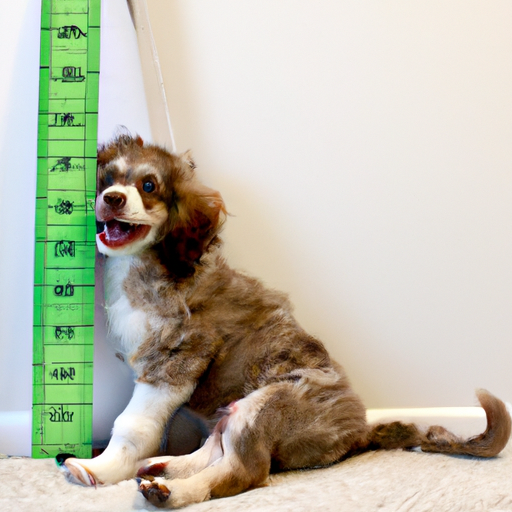As a caregiver, you’re likely to be curious about how long your cute little furry friend will continue to grow. Understanding the growth rate and stages of a puppy can help you provide the best care possible. Here’s a detailed guide on how long puppies grow.
Understanding the Growth Stages of a Puppy
The growth of a puppy is divided into several stages, with each exhibiting distinct physical and behavioral changes.
- Neonatal Stage (0-2 weeks): Puppies are born blind, deaf, and completely dependent on their mother.
- Transitional Stage (2-4 weeks): This stage is marked by the opening of the eyes and ears and the beginning of movement.
- Socialization Stage (4-12 weeks): This is a critical period for puppies, during which they learn to interact with other animals and humans.
- Juvenile Stage (3-6 months): Puppies start to look and behave more like adult dogs in this stage.
- Adolescence (6-18 months): This stage is characterized by sexual maturity and, often, a fair amount of mischief.
- Adulthood (18 months onward): By this time, most dogs will have reached their adult size.
Factors Affecting Puppy Growth
There are several factors that can influence how long a puppy will grow:
- Breed: Larger breeds typically grow for a longer period compared to smaller breeds.
- Nutrition: A balanced diet is crucial for proper growth and development.
- Genetics: Genetic factors can also influence the rate and duration of growth.
When Do Puppies Stop Growing?
The majority of puppies reach their full height by the age of 1 year, but their weight can continue to increase until about 2 years old. However, it varies depending on the breed.
Here’s a simple table to guide you:
| Breed Size | Full Grown Height | Full Grown Weight |
|---|---|---|
| Small | 6-8 months | 10-12 months |
| Medium | 8-12 months | 12-16 months |
| Large | 12-18 months | 18-24 months |
How to Track Your Puppy’s Growth
To ensure your puppy is growing healthily, it’s important to track their growth regularly. Here are some steps you can follow:
- Measure Height: Measure your puppy’s height every month by measuring from the top of their shoulders to the ground.
- Weigh Your Puppy: Regular weigh-ins can help you keep track of your puppy’s weight gain.
- Monitor Physical Changes: Keep an eye out for changes in your puppy’s appearance, such as their coat, teeth, and muscle tone.
- Observe Behavior: Changes in behavior can also indicate growth and development.
Tips for Ensuring Healthy Puppy Growth
As a caregiver, you play an important role in ensuring your puppy grows healthy. Here are some tips:
- Provide a balanced diet that’s appropriate for your puppy’s age, breed, and size.
- Regular exercise is essential for physical development.
- Regular vet check-ups can help identify any potential growth-related issues early.
Common Puppy Growth Problems and How to Address Them
Sometimes, puppies might encounter growth-related problems. Here are some common ones and what you can do:
- Obesity: Overfeeding can lead to obesity, which can hinder growth. Maintain a proper feeding schedule and ensure regular exercise.
- Developmental orthopedic diseases: These are common in large breed puppies and can cause issues like limping. Regular vet check-ups are crucial to detect and address these issues early.
Frequently Asked Questions
When will my puppy stop growing?
Most puppies will stop growing in height by the age of 1 year, but can continue to gain weight until about 2 years old.
Does neutering/spaying affect a puppy’s growth?
Neutering or spaying can slightly delay a puppy’s growth plate closure, leading to slightly taller dogs, but the overall impact on growth is minimal.
How can I tell if my puppy is growing properly?
Regular measurements, weigh-ins, and vet check-ups can help ensure your puppy is growing properly. Also, look out for any sudden changes in behavior or physical appearance.
Can I speed up my puppy’s growth?
It’s not recommended to speed up a puppy’s growth. Puppies should grow at their own natural pace to avoid potential health issues.
This guide should provide you with the necessary information to understand your puppy’s growth journey. Remember, every puppy is unique, so it’s important to be patient and attentive throughout their growth process.



